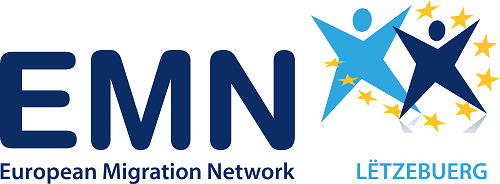The newly released EMN inform on ‘Access to autonomous housing in the context of international protection’ delves into the dynamics of securing autonomous housing for beneficiaries and applicants of international protection. Unveiling the challenges faced by these individuals, this inform provides an overview of the different approaches and strategies employed by EMN Member Countries and Serbia to support their access to autonomous housing.
A new inform from the European Migration Network (EMN) entitled ‘Access to autonomous housing in the context of international protection’ sheds light on the challenges faced by beneficiaries and applicants for international protection in EMN Member Countries and Serbia as they strive to access autonomous housing. The Commission’s Action Plan on Integration and Inclusion 2021-2027 highlights the importance to promote models of autonomous housing (rather than collective housing) for asylum applicants, especially families, and disseminate and scale up successful innovative models of inclusive and affordable housing for beneficiaries of international protection. The Action Plan encourages EU Member States to provide adapted and autonomous housing solutions as early as possible for refugees and asylum seekers who are likely to be granted international protection to enable a smooth transition for asylum seekers to independent living once they have been granted international protection.
The findings of the inform highlight the obstacles encountered by applicants and beneficiaries of international protection, including a widespread shortage of housing and consequent increase in housing prices, long waiting lists within the social rented sector and discrimination in the private housing market. Language barriers and administrative hurdles further compound these challenges, making the transition to autonomous housing a complex process.
The inform shows that most EMN Member Countries and Serbia have specific procedures and measures to ease the transition from housing assistance provided under the reception system to autonomous housing. Such measures include the provision of information/counselling, placements in transitional housing, and extensions of the period beneficiaries of international protection can stay in reception centres to allow for more time to secure autonomous housing.
Most EMN Member Countries have a multi-actor structure to support access to autonomous housing, involving central, regional, and local authorities, as well as non-governmental organizations (NGOs). Migration and asylum authorities, housing authorities and social welfare authorities are the main actors providing this type of support.
The inform also reveals that nearly all EMN Member Countries as well as Serbia provide some form of support to beneficiaries of international protection in accessing autonomous housing. This group can typically access mainstream social and housing support services (e.g. social housing, social benefits, rental subsidy, support from social services). Moreover, most EMN Member Countries and Serbia have also implemented targeted policies and measures at central, regional and/or local level to help beneficiaries of international protection to counter some of the specific barriers they face in accessing autonomous housing. These include, for example, direct allocation of housing, provision of financial assistance, counselling and support in finding housing and mediation services. Support services (targeted and mainstream) are however only accessible to those already benefiting from internal protection status, as applicants for international protection rarely receive support in accessing autonomous housing outside the reception system (outside material reception conditions).
To further enhance access to autonomous housing, the inform also identifies several good practices, including the provision of financial support for initial costs associated with signing a lease, the early provision of information on access to autonomous housing, enhanced coordination in the provision of support, fostering general integration, and ensuring flexibility for individuals to move out of reception centres.
French translation of the Inform was kindly provided by EMN France.

